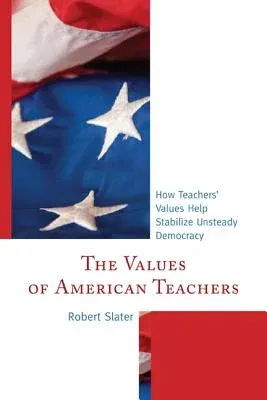Robert Slater
(Author)The Values of American Teachers: How Teachers' Values Help Stabilize Unsteady DemocracyPaperback, 16 October 2013

Qty
1
Turbo
Ships in 2 - 3 days
In Stock
Free Delivery
Cash on Delivery
15 Days
Free Returns
Secure Checkout
Print Length
138 pages
Language
English
Publisher
R & L Education
Date Published
16 Oct 2013
ISBN-10
147580007X
ISBN-13
9781475800074
Description
Product Details
Author:
Book Format:
Paperback
Country of Origin:
US
Date Published:
16 October 2013
Dimensions:
22.61 x
15.24 x
1.27 cm
ISBN-10:
147580007X
ISBN-13:
9781475800074
Language:
English
Pages:
138
Publisher:
Weight:
226.8 gm

